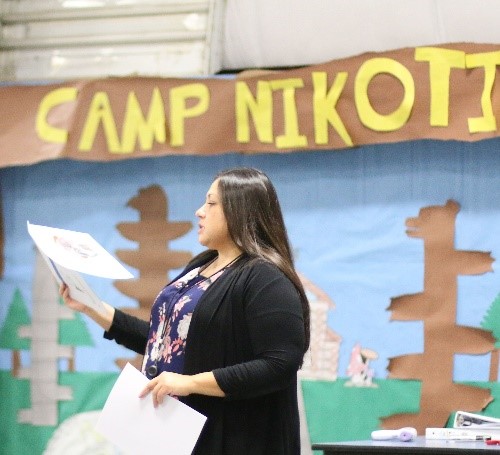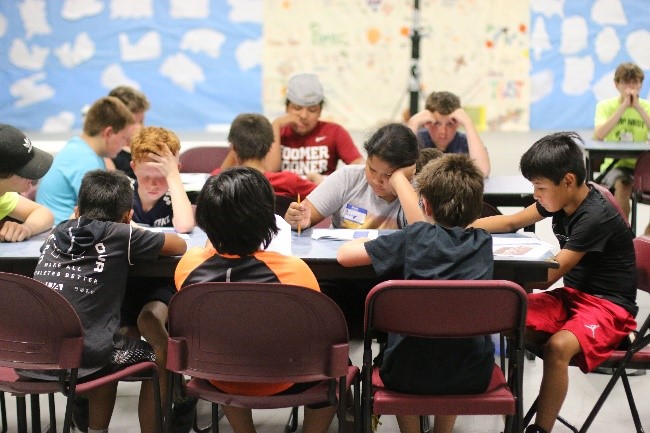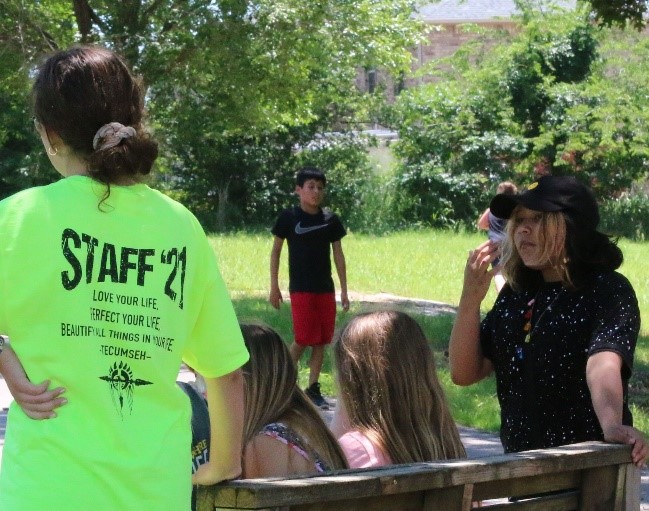This year the Absentee Shawnee Tribe (AST) celebrates the 20th anniversary of “Camp Nikoti.” The camp, which takes place over the course of the summer months is open to elementary and middle-school age youth and coordinated and implemented by the youth program, education department and contributing volunteers and partners. Discussing the meaning behind the camp’s name, Tresha Spoon, AST Education Director shares that, “In the Shawnee language, nikoti is the number one. The initial group involved with establishing the camp felt that by the end of the camp, the group is one group, one family.” Throughout the camp, youth are able to engage with peers, camp staff, youth counselors, and guest speakers from various Tribal programs. As part of skills-building, cultural, and pro-social learning opportunities, campers participate in coordinated games, crafts, physical fitness, field trips and special activities.
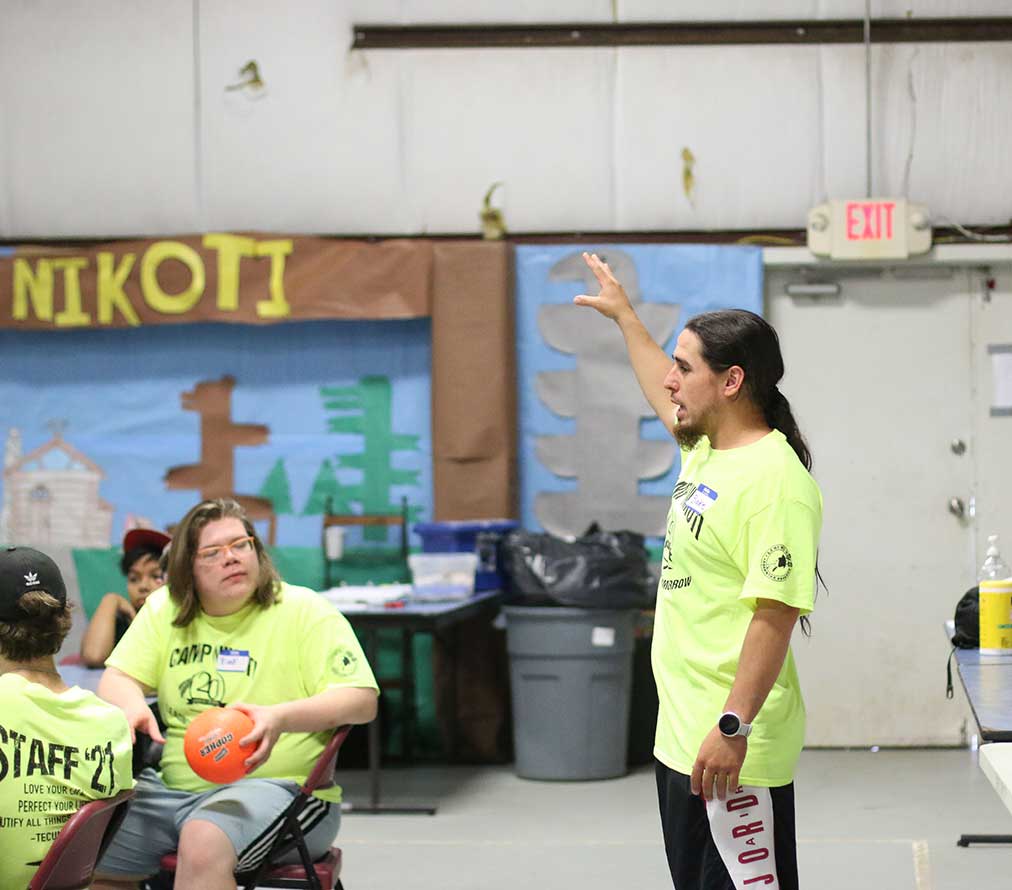
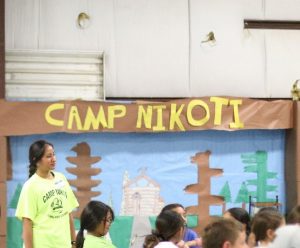
In celebration of the 20th anniversary, camp staff and youth decorated the building with prior year camp themes. In discussing the longevity of the camp, Tresha Spoon notes that the camp began shortly after she began working for the AST, sharing that “This camp has been going on for a long time, it’s really neat that some of the youth who are participating have parents who were a part of this camp as teenagers.” The Absentee Shawnee Tribe is comprised of approximately 4,500 members from the Big Jim and White Turkey bands of Shawnee people. These bands migrated from colonial encroachment and were subsequently removed to present day Little Axe and Shawnee areas of Oklahoma. [1] Youth who do not reside near the camp that is based in Little Axe are bussed in from Shawnee. The AST is an OJJDP FY2019 Tribal Youth Program (TYP) grantee and has also received TYP funding in previous years.
Blake Goodman, AST Youth Program Coordinator, shares “this year we have about 40 youth who are participating, it’s nice to have the kids back together.” Like many other communities, AST youth program services were impacted by the COVID-19 pandemic. AST youth program staff worked to find alternate ways to stay connected with youth and implemented virtual tutoring and support for youth engaged in the daily after school program.
The 2021 camp is proving to be lively and energized and began with welcomes, introductions, and “get-to-know-you” games. Small groups of youth led by teen group leaders have worked together to create team names, flags and sing songs together. Sharing more about program activities, AST Tribal Youth Resource Specialist Shayanne Fixico comments that “each youth has a daily journal to write in and to keep for themselves, we don’t read them, it’s more for them to keep and have.”

Along with daily activities, camp organizers also plan some evening events. These events are optional and are an additional element that supports family connection and engagement. In response to considering what impacts Camp Nikoti has on youth, Blake Goodman shares that a highlight for him is “watching the kids come in their first year nervous and timid, and watching them grow over the years and then transition into volunteering or working for us.” Tresha Spoon shares “I hope the kids see the resiliency of their tribe, their people and although we’ve lost tribal elders and other loved ones and our lives have been changed forever in some ways, we as native people pick up and carry on. Hopefully, they will see how much their tribe cares for their health and well-being by offering this camp for twenty summers. Ultimately, I hope they know we love them and are here for them no matter what’s going on around us.” With such caring mentors and leaders, Camp Nikoti present and future is sure to provide many special memories for AST youth.
Tresha Spoon, AST Education Program Director teaching a tribally focused youth financial literacy class. Youth participate in financial literacy class. Camp staff wear shirts with Chief Tecumseh quote, “Love your life, perfect your life, beautify all things in your life.”
